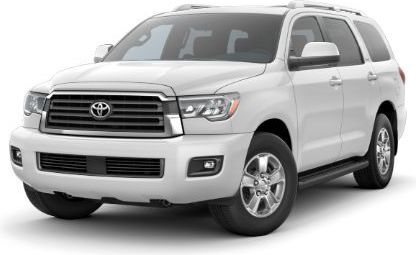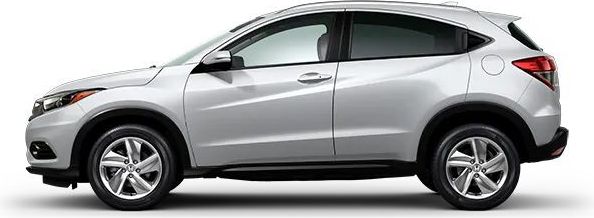Choosing a family car is one of the most important decisions a parent can make. It's not just about aesthetics or the latest technology; safety is paramount. A safe vehicle protects your most precious cargo—your children—and ensures peace of mind while you're on the road. With numerous options available, understanding what to look for in a safe family car can make the decision-making process much easier. This article will delve into the critical aspects of safety features, reliability, and the importance of working with reputable brands.

Understanding Reliable Brands
When searching for a safe family car, it is essential to consider the manufacturers that have a strong reputation for reliability and safety. Japanese brands, such as Subaru and Toyota, are well-known for their commitment to producing vehicles that meet high safety standards. These brands consistently perform well in safety tests and are equipped with advanced safety features that can help protect your family in the event of an accident. Whether you go to a Subaru dealer or a Toyota one, you can expect to find vehicles that prioritize your family’s safety without sacrificing comfort or style. One of the key advantages of choosing a reliable brand is their attention to detail in engineering.
Vehicles from these manufacturers often include features such as multiple airbags, stability control systems, and advanced driver assistance technologies that enhance safety on the road. For instance, features like lane departure warnings, automatic emergency braking, and adaptive cruise control can significantly reduce the risk of accidents, making these brands a solid choice for families.
Safety Ratings Matter
As you narrow down your options, it’s crucial to pay attention to safety ratings provided by organizations such as the National Highway Traffic Safety Administration (NHTSA) and the Insurance Institute for Highway Safety (IIHS). These organizations conduct rigorous crash tests and evaluate vehicles based on their safety performance. Higher ratings indicate better protection for occupants, which is especially important when it comes to family vehicles.
Consult the safety ratings of specific models you’re considering. Vehicles that have received five-star ratings or are recognized as Top Safety Picks by the IIHS should be prioritized. These ratings are not just numbers; they reflect the effectiveness of the car’s safety features in real-world scenarios. Additionally, reading reviews and feedback from other parents can provide insights into how well these vehicles perform in everyday conditions.
Comfort and Space for Everyone
While safety is the primary concern, the comfort and space available in a family car cannot be overlooked. Consider the number of family members you typically transport and whether you often travel with extra cargo, such as sports equipment or luggage. A vehicle with ample space can significantly enhance the driving experience and prevent feelings of confinement during longer trips.
Look for cars that offer adjustable seating arrangements to accommodate different needs. Many family vehicles, including SUVs and minivans, come equipped with flexible seating that can be rearranged or removed entirely. This adaptability is particularly beneficial for growing families, allowing you to maximize space as your needs change over time.
Fuel Efficiency Counts
In today’s economy, fuel efficiency is an essential consideration for any vehicle, especially for families who may be driving frequently. A car that offers good fuel economy can save you money in the long run and reduce your carbon footprint. When evaluating vehicles, check the estimated miles per gallon (MPG) ratings and consider how these figures align with your driving habits.
Hybrid and electric vehicles have become increasingly popular among families for their impressive fuel efficiency. Many car brands are leading the charge in offering environmentally friendly options without compromising safety and comfort. If reducing fuel costs and environmental impact is a priority for your family, explore these alternatives as potential options.

The Importance of Test Driving
Once you’ve narrowed your choices based on safety ratings and features, the next step is to test-drive your top picks. A test drive allows you to assess how a vehicle handles on the road and whether it meets your family’s needs. Pay attention to factors such as visibility, comfort, and the ease of getting in and out of the vehicle, particularly for children and older family members.
During the test drive, simulate scenarios you would typically encounter, such as parking, turning, and navigating tight spaces. This practical experience is invaluable in determining whether the car is a good fit for your lifestyle. Don't hesitate to test multiple vehicles to compare their features and performance firsthand.
Researching After-Sales Support
After purchasing your family car, the relationship with your dealership doesn’t end. It’s essential to consider the after-sales support you’ll receive. A reputable dealership will provide reliable customer service, maintenance, and repair services that can significantly enhance your overall ownership experience.
When evaluating dealerships, inquire about the warranty coverage they offer. A comprehensive warranty can provide peace of mind, especially for families who depend on their vehicles daily. Additionally, look for dealerships that offer regular maintenance checks and service specials to keep your vehicle running smoothly.
Staying Informed on Safety Features
Finally, it’s essential to stay informed about the latest safety features and advancements in automotive technology. The automotive industry is continuously evolving, and new safety technologies are being introduced regularly. Features that were once considered cutting-edge may become standard in just a few years.
Research upcoming models and their safety innovations, and consider how these advancements might benefit your family. By being informed, you can make a decision that not only meets your current needs but also prepares you for future developments in automotive safety.
Choosing a safe family car involves careful consideration of safety features, comfort, reliability, and overall performance. By focusing on reputable brands known for their safety records, understanding the importance of local expertise, and staying informed about advancements in automotive technology, you can confidently select a vehicle that will keep your family safe and secure.
Investing time in research and test-driving potential vehicles can lead to a decision that enhances your family's comfort and safety for years to come. Ultimately, a well-chosen family car will contribute to countless happy memories on the road, providing both protection and enjoyment as you travel together.




